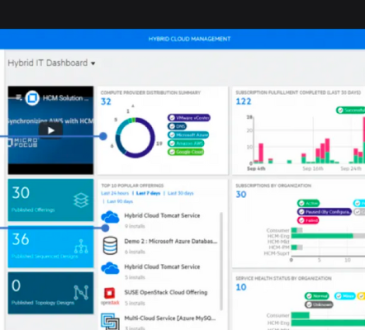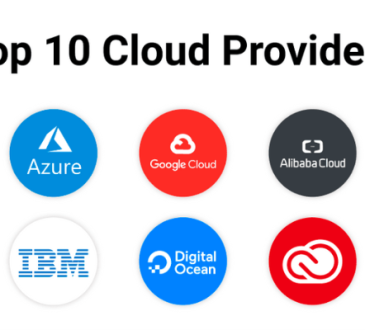
In the ever-evolving landscape of digital technology, the choices we make regarding data storage can have a profound impact on our daily lives, both personally and professionally. Two primary options dominate this space: cloud storage and local storage. Each has its own set of advantages and disadvantages, catering to diverse needs and preferences. In this comprehensive exploration, we will delve into the intricate details of cloud storage vs local storage, weighing their pros and cons to help you make informed decisions in an era where data plays a pivotal role in our connected world.
Contents
Cloud Storage: Unveiling the Virtual Realm
Cloud storage, a paradigm shift from traditional local storage, involves storing and accessing data over the internet through remote servers. This virtualized approach offers several benefits that have contributed to its widespread adoption.
Pros and Cons of Cloud Storage vs Local Storage

Advantages of Cloud Storage:
- Accessibility and Convenience:
- Cloud storage provides ubiquitous access to your data from any device with an internet connection. This flexibility is particularly valuable in a world where individuals and businesses operate across various platforms and locations.
- Scalability:
- Cloud storage solutions often allow users to scale their storage needs seamlessly. As your data requirements grow, you can easily expand your storage space without the need for physical upgrades or new hardware.
- Collaboration and Sharing:
- Collaborative work environments thrive on the ability to share and edit documents in real-time. Cloud storage facilitates seamless collaboration by allowing multiple users to access and work on the same files simultaneously, fostering productivity and efficiency.
- Automatic Backup and Versioning:
- Cloud storage services typically include automated backup features, ensuring that your data is securely stored and can be recovered in case of accidental deletions or hardware failures. Versioning features also enable you to revert to previous iterations of your files.
Disadvantages of Cloud Storage:
- Dependency on Internet Connectivity:
- The reliance on internet connectivity poses a significant drawback for cloud storage. Access to your data is contingent on a stable and high-speed internet connection, which may be a limitation in areas with poor connectivity.
- Security Concerns:
- Security remains a paramount concern with cloud storage. Entrusting sensitive data to third-party servers raises questions about data breaches, unauthorized access, and the potential for service providers to monetize user information.
- Subscription Costs:
- While many cloud storage services offer free plans, significant storage requirements may necessitate subscription-based models. Over time, these costs can accumulate, potentially exceeding the upfront investment required for local storage solutions.
Local storage, the traditional method of storing data on physical devices such as hard drives or solid-state drives (SSDs), has been a stalwart in the realm of data management. Despite the advent of cloud storage, local storage continues to offer certain advantages that make it a viable option for many users.

Advantages of Local Storage:
- Speed and Performance:
- Local storage systems provide faster access to data compared to cloud storage. The absence of internet latency ensures quick retrieval and transfer of files, making local storage preferable for applications that demand high-performance data access.
- Data Control and Security:
- With local storage, users have direct control over their data. This hands-on approach can enhance security, as individuals and organizations can implement their preferred encryption methods and security protocols without relying on third-party services.
- Cost Efficiency for Large Storage Needs:
- For users with extensive storage requirements, local storage solutions can be more cost-effective in the long run. While the upfront costs may be higher, the absence of recurring subscription fees can make local storage more economical over time.
- Offline Accessibility:
- One of the primary advantages of local storage is the ability to access data without an internet connection. This offline accessibility is crucial in situations where internet access is limited or unavailable.
Disadvantages of Local Storage:
- Limited Accessibility:
- Unlike cloud storage, which allows access from anywhere with an internet connection, local storage is bound to the physical location of the storage device. This limitation can hinder collaboration and remote work scenarios.
- Susceptibility to Physical Damage:
- Local storage devices, being physical in nature, are susceptible to damage from various factors such as drops, spills, or electrical issues. This vulnerability poses a risk of data loss that may be mitigated by regular backups but remains a concern.
- Limited Scalability:
- Unlike cloud storage, which can be easily scaled to accommodate growing data needs, local storage requires physical upgrades or the addition of new hardware. This process can be time-consuming and may result in downtime.
Making Informed Choices:
As individuals and organizations navigate the digital landscape, the choice between cloud storage and local storage is not one-size-fits-all. Considerations such as data accessibility, security, collaboration requirements, and budget constraints play crucial roles in determining the most suitable storage solution.

Recommendations:
- Hybrid Approaches:
- For a balanced approach, many users opt for hybrid solutions that combine the advantages of both cloud and local storage. Critical and sensitive data can be stored locally for enhanced security, while less sensitive data can be stored in the cloud for accessibility and collaboration.
- Evaluate Security Measures:
- Users opting for cloud storage should carefully evaluate the security measures implemented by service providers. Encryption, multi-factor authentication, and data access controls are essential features that contribute to a secure cloud storage environment.
- Consider Data Privacy Regulations:
- Businesses, in particular, should be mindful of data privacy regulations when choosing between cloud and local storage. Depending on the industry and geographical location, there may be legal requirements governing how data is stored and managed.
- Assess Internet Connectivity:
- The reliance on internet connectivity for cloud storage necessitates a thorough assessment of the quality and reliability of available internet connections. In areas with unstable or slow internet, local storage may be a more practical choice.
Conclusion
In the dynamic landscape of digital storage, the decision between cloud storage and local storage is a multifaceted one that requires careful consideration of individual needs and priorities. Each option presents a unique set of advantages and challenges, and the ideal solution may involve a combination of both. As technology continues to advance, users will likely witness further innovations in storage solutions, providing even more options to meet the diverse demands of the digital age.



